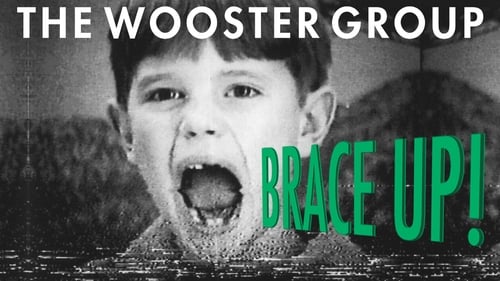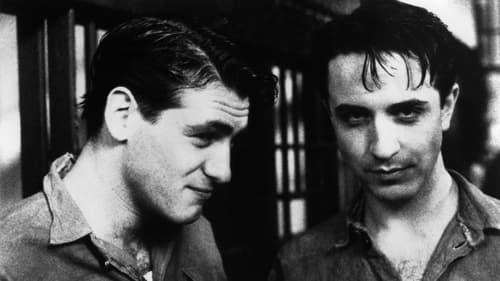
Chelsea Hotel Manager
Based on the true story of Valerie Solanas who was a 1960s radical preaching hatred toward men in her "Scum" manifesto. She wrote a screenplay for a film that she wanted Andy Warhol to produce, but he continued to ignore her. So she shot him. This is Valerie's story.

Street Musician
The Wooster Group's production of Anton Chekhov's Three Sisters, translated by Paul Schmidt and directed by Elizabeth LeCompte, with performances from Kate Valk, Peyton Smith, Scott Shepherd, Ari Fliakos, Anna Kohler, Beatrice Roth, Ron Vawter, and Willem Dafoe. This presentation of the 2003 production of BRACE UP!, designed by Ken Kobland and LeCompte, incorporates close-up recordings of the performers simultaneously with continuous wide-angle footage.

White Homeland Commando takes the familiar terrain of network action drama and tilts the playing field. Reminiscent of today's popular reality-based cop shows, White Homeland Commando offers a straightforward story: four members of a special police unit investigate and infiltrate a New York-based white supremacist organization. But that is where the commonplace ends. The teleplay is shot and edited in a highly textured visual style, the colors are subdued yet somehow garish, and the sound is deliberately just out of sync with the speaker's lips. Occasional static combines with jumps in the plot — the editing is reminiscent of a television viewer flipping channels.

Doctor Bowman
Teenagers Nathan Leopold Jr. and Richard Loeb share a dangerous sexual bond and an amoral outlook on life. They spend afternoons breaking into storefronts and engaging in petty crimes, until the calculating Nathan ups the ante by kidnapping, and murdering, a young boy.

German director Hans Noever shot this crime drama in the U.S. in English, an unusual achievement at this time. The setting is Jefferson City, Missouri, and Joseph Randolph (Martin West), a VIP in a fictional electronics company, has just gotten the sack. The company bigwigs insist it is simply because of downsizing, but Randolph is not buying it. Enraged, he gets a handgun (this is the U.S.) and shoots five managers to death. Then he turns himself in and is eventually put in a psychiatric hospital by the police. His family suffers a series of tragedies that leave only his daughter to wonder about why her father was committed to an institution. She joins with a visiting reporter from Chicago and another interested man, and all three start digging deeper into the company's history.




